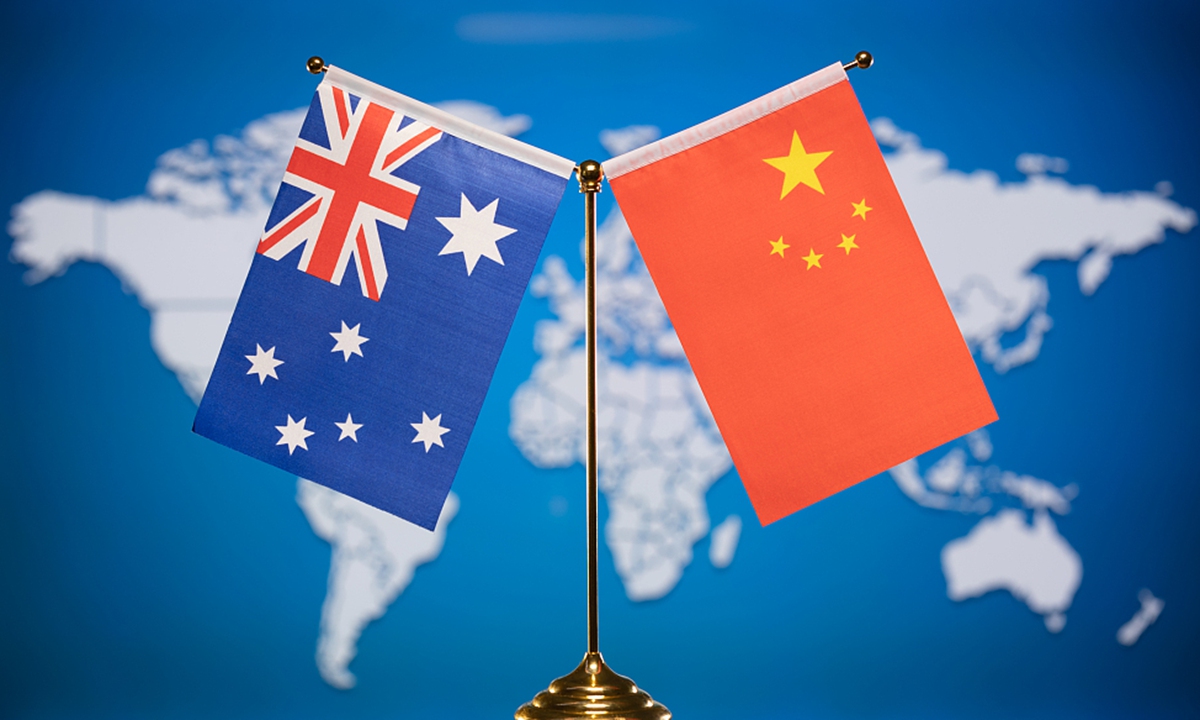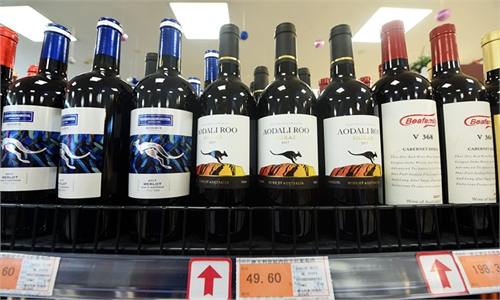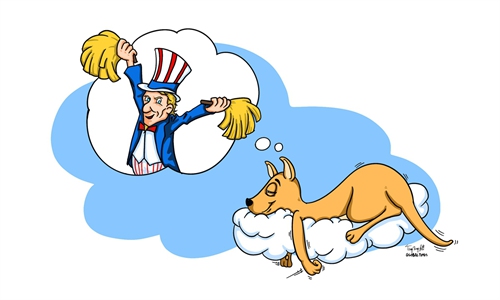
China Australia. Photo: VCG
In a recent speech made at Australia's National Press Club, Japanese Ambassador to Canberra Shingo Yamagami profusely applauded the Morrison administration's provocative and hostile approaches of handling Australia's relations with China. He slandered China's lawful and justified trade actions on Australian exports as coercive pressure, and instigated Canberra to continue relentlessly antagonizing its biggest trade partner in an inimically confrontational way. "You are doing an excellent job," commended Yamagami, adding more fuel to the already fiery tensions between Australia and China.As Japan's top diplomat to Australia, it is obviously very undiplomatic for Yamagami to try to shove Canberra's icy relationship with Beijing into a more aggravating deadlock in such an unveiled and inflaming manner. Instability and confrontations in the Asia-Pacific region would not only impair Australia and China's national interests, but would also backfire to inflict harm on Japan itself.
The Japanese envoy went further by encouraging Canberra to invoke the mythological US-Japan-Australia alliance. "Australia, Japan, (the) United States, like-minded countries have to get together (and) join forces" to tackle "the rise of this emerging power."
However, the most recent statistics show that the US has been taking the lion's share of the market in China left by the exit of some Australian products, in particular wines, beef, timber, and seafood. Moreover, the US had not been an exporter of coal to China, but the most recent year has witnessed a sharp surge from almost zero American coal bound for China in October 2020 to 720,000 tons in May this year. American beef exports to China have now overtaken Australian products, harvesting on the huge Chinese market with an increasing middle class population of 400 million strong.
In fact, even Japan itself has been handling its relations with China in ways much more cautious and prudent than Australia. While differences and disputes remain between the two countries, Tokyo has managed to maintain political, economic, social and cultural dialogues and exchanges with Beijing at various levels.
In recent months, Australia has been hit by successive outbreaks of the COVID-19 pandemic, in particular with the Delta variant rampaging in its major cities and towns. Almost half of the population are confined at home with another round of lockdown, with no foreseeable prospect of an immediate lift. Australia's economy, pillared with exports, tourism and international education, has been facing serious peril with international travel and supply chains disrupted and therefore adversely impacted. It is in essence irrational and self-defeating that Canberra has been ferociously turning against its comprehensive strategic partner, China, jeopardizing its own long-term economic health.
The Japanese ambassador's void promises and futile support carry no actual substance. It is simply out of the question that Japan, itself ensnared in the deteriorating pandemic, would lend a helping hand to Australia's economic plight.
One thing that causes alarm is that Yamagami attempted to coax Australia to get implicated in the contestations in the East China Sea, on the ground that, according to his absurd logic, Australia's trade shipping route goes through the said waters. But it is plain to any eye that the destinations of most of Australia's trade going through the East China Sea are located in China. Does Yamagami really believe that Canberra politicians are so gullible as to believe China would attack shipments destined to its own ports? His ulterior motive is simply to embroil Australia into Japan's illegitimate territorial contest for the island.
Canberra has already been acting as the deputy sheriff for Washington's anti-China campaign, only to gravely spoil the mutually beneficial relations with China that for almost 50 years had brought substantive dynamism to its economic development. Australia is an independent country with its own national interests and does not have to prioritize Washington or Tokyo's strategic goals. Do Morrison and his policymakers have the political wisdom to become aware of this and stop acting as the cat's paw for other countries?
The author is President of the Chinese Association of Australian Studies, and professor and Director of the Australian Studies Centre, East China Normal University. opinion@globaltimes.com.cn


